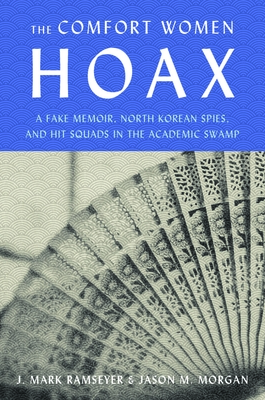During World War II, the Japanese military extended Japan's civilian licensing regime for domestic brothels to those next to its overseas bases. It did so for a simple reason: to impose the strenuous health standards necessary to control the venereal disease that had debilitated its troops in earlier wars. In turn, these brothels (dubbed "comfort stations") recruited prostitutes through variations on the standard indenture contracts used by licensed brothels in both Korea and Japan.The party line in Western academia, though, is that these "comfort women" were dragooned into sex slavery at bayonet point by Japanese infantry. But, as the authors of this book show, that narrative originated as a hoax perpetrated by a Japanese communist writer in the 1980s. It was then spread by a South Korean organization with close ties to the Communist North.Ramseyer and Morgan discuss how these women really came to be in Japanese military comfort stations. Some took the jobs because they were tricked by fraudulent recruiters. Some were under pressure from abusive parents. But the rest of the women seem to have been driven by the same motivation as most prostitutes throughout history: want of money. Indeed, the notion that these comfort women became prostitutes by any other means has no basis in documentary history.Ramseyer and Morgan's findings caused a firestorm in Japanese Studies academia. For explaining that the women became prostitutes of their own volition, both authors of this book found themselves "cancelled."In this book, the authors detail both the history of the comfort women and their own persecution by academic peers. Only in the West--and only through brutal stratagems of censorship and ostracism--has the myth of bayonet-point conscription survived.










